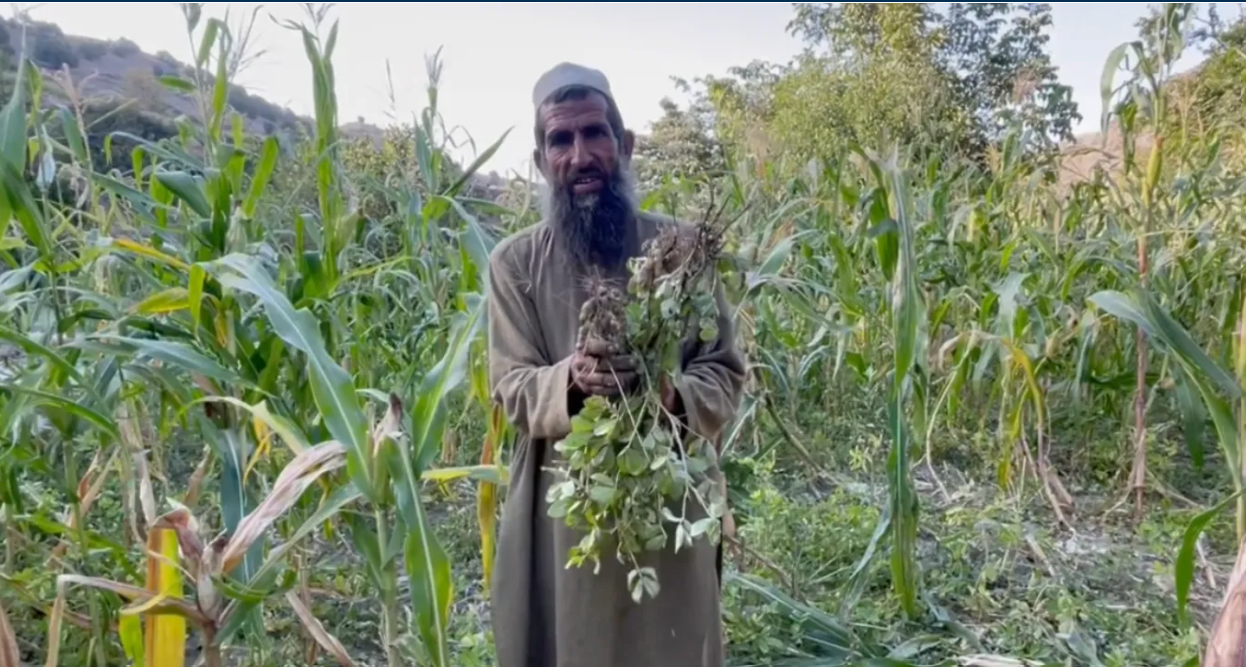
Changed the area from gray to green
What’s the context?
Afghanistan is among the most vulnerable countries to climate change, but has been excluded from the COP28 global climate summit. Climate change fuels hunger in Afghanistan. Aid agencies say climate-driven disasters are exacerbating Afghanistan's humanitarian crisis which has left about two-thirds of the country's 40 million people needing assistance. Analysts also warn that Afghanistan's climate challenges could have global repercussions - fuelling mass migration and impacting water availability in neighbouring countries. Afghan diasporas fund dams for farmers. Taliban consult overseas climate experts Haska Mina, AFGHANISTAN - Two years ago, Afghan farmer Ghulam Sakhi watched in despair as his wheat and corn plants withered under an unrelenting sun in the worst drought he had seen in his 70 years. Today not only are his crops flourishing, but his fields boast aubergines, celery, onions and potatoes. He has planted 160 apple trees and his cows, sheep and
goats graze nearby. The transformation in a corner of Nangarhar Province, in eastern Afghanistan, has been brought about by an irrigation project, mostly financed by Afghans abroad, but built by locals like Sakhi. "The area has completely changed from grey to green," said water management expert Zmarai Kochi who helped oversee the project. "It's been more successful than we even dreamt. We hope to replicate this across Afghanistan."
But funding for scaling up is a headache. When the Taliban seized power in August 2021, the international community froze most aid for development, including climate adaptation projects. The south Asian country is one of the most vulnerable to climate change with increasing droughts and flash floods destroying livelihoods and fuelling hunger. Average temperatures have increased by 1.8 degrees Celsius since 1950, about twice the global rate, according to the country's National Environmental Protection Agency (NEPA).
 Farmer Hazratullah is seen near a dam in Haska Mina in Nangarhar province, east Afghanistan, October 2023. Thomson Reuters Foundation/Rohullah Talaash.
Farmer Hazratullah is seen near a dam in Haska Mina in Nangarhar province, east Afghanistan, October 2023. Thomson Reuters Foundation/Rohullah Talaash.
Succes Stories Report Link
Succes Stories Video Link
Climate change adaptation
In Nangarhar, farmer Sakhi proudly shows off a new dam he helped construct near his home in Haska Mina district, close to the Pakistan border. Local farmers have spent two years building canals, trenches, ponds and small dams that can now store 300,000 cubic metres of water, about 120 Olympic-sized swimming pools.
Ghulam Sakhi "Before this the floods would come and take away everything with them," said Sakhi. "Now we can control the flow of water and save it for future days. Everyone has access to water anytime, anywhere." The father of 12 said the project meant his annual income had soared from as little as 10,000 afghanis ($143) to up to 60,000 afghanis. The initiative has also reinvigorated the community. In the past, men like 35-year- old Hazratullah migrated to look for work elsewhere, including in Pakistan. Hazratullah enthusiastically reeled off a list of new crops he is growing including cucumber, pumpkin and okra that would not have survived before. "When there's no water people are forced to abandon their homeland," said the farmer who hopes his migrating days are behind him.
"The dam has brought stability and prosperity to our community." Farmers like Sakhi and Hazratullah were paid 300 afghanis a day for their labour. Costing about $120,000, the scheme was managed by ECOFA, a non- governmental organisation (NGO) which has similar projects in three other provinces. About 90% of the money was raised by Afghans overseas via a mosque in northern Germany. But ECOFA spokesman Kochi said such ad hoc funding was unsustainable and urged the international community to help expand the work. Najibullah Sadid, an Afghan water specialist based in Germany, said funding for climate adaptation projects could be channelled via the same organisations to bypass the Taliban. "It makes no sense to keep giving food aid but not invest in climate adaptation projects that will help people grow their own food," Sadid said. "If you don't target the root of the problem, the hunger will go on forever." Financial sanctions are not the only issue however. Afghanistan also lacks expertise after hundreds of environmental specialists quit the country when the Taliban took over. But he added that the Taliban appeared keen to learn and were even consulting overseas experts like himself who have criticised them. "When we have discussions on social media a lot of them are joining. They're listening, they're asking questions," Sadid said. "They are also contacting us privately. We see they are interested." October 2023. Thomson Reuters Foundation/Rohullah Talaash